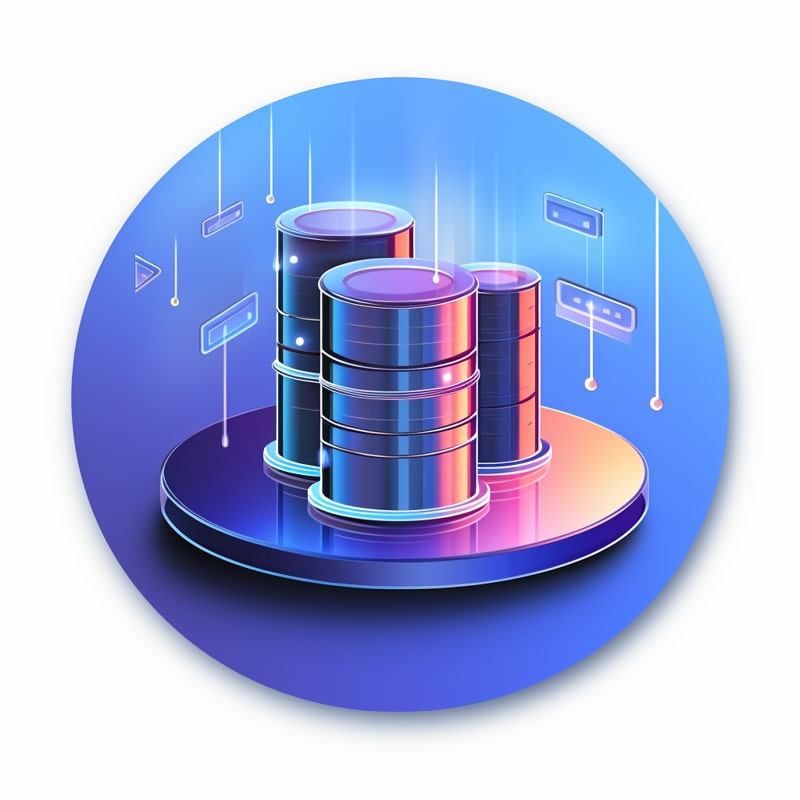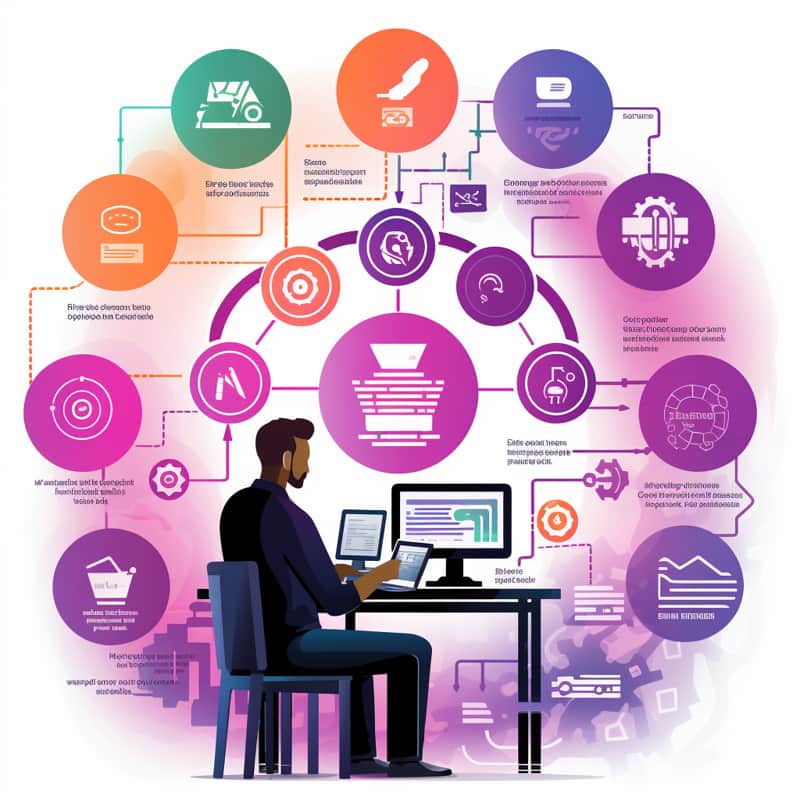Jenkins Interview Questions and Answers
It provides a powerful and flexible platform for automating software development processes, including building, testing, and deploying applications.
Jenkins interview questions and answers will help you prepare for a Jenkins interview and demonstrate your knowledge and skills to potential employers.

1. What is Jenkins?
Jenkins is an open-source continuous integration and continuous delivery (CI/CD) software platform that helps automate the software development process.
2. How can Jenkins be installed?
Jenkins can be installed using three mechanisms: Windows or Linux-based services, downloading a generic word file, or using an existing Java-based web server, the installation process remains the same regardless of the method used.
3. What are the prerequisites for installing Jenkins on a Windows box?
Jenkins requires Java 1.7 or 1.8, with GB RAM being recommended. When installing JDK, ensure that the environment variable Java home points to the correct directory.
4. What are the recommended plugins for Jenkins?
Jenkins recommends installing recommended plugins, which are essential for Jenkins to run properly. These plugins include Git, GitHub, Maven, and Docker.
5. How can Jenkins be connected to GitHub?
Jenkins can be connected to GitHub by installing the Git plugin and configuring the Git plugin settings.
6. How can access to Jenkins be controlled using a role-based access plugin?
Access to Jenkins can be controlled using a role-based access plugin by creating rules for different roles and users, these rules can be global or project-specific and can be assigned to different categories.
7. What does a Jenkins plugin do?
The aim of plugins in Jenkins is to increase the platform’s functionality. They allow Jenkins to be integrated with a wide range of tools and containers, including Big Bucket, AWS, Docker, and Git servers.
8. How can a user connect to a Docker instance running globally in Jenkins?
A user can connect to a Docker instance running globally in Jenkins by installing a Docker plugin on their Jenkins instance.
9. How can a user restrict permissions for a role in Jenkins?
A user can restrict permissions for a role in Jenkins by creating a global role with limited permissions and assigning specific permissions to the role.
10. What is the distinction between a developer and a regular role in Jenkins?
Developers are high-level global roles with limited access. We use it to manage and assign roles to users. However, the Jenkins instance owner owns a standard role with higher permissions.
11. How can a user create a new user in Jenkins?
A user can create a new user in Jenkins by providing a username and password and navigating to the “Assign roles” section. They can then assign the user to a specific role, ensuring they can only access the job that has been created.
12. Why do Jenkins plugins exist?
Jenkins plugins enhance platform functionality. Jenkins can be connected to AWS, Docker, Git servers, and Big Bucket.
13. How can a user connect to a Docker instance running globally in Jenkins?
A user can connect to a Docker instance running globally in Jenkins by installing a Docker plugin on their Jenkins instance.
14. How does Jenkins manage nodes?
Jenkins manages nodes through an agent that is provisioned on the server and controlled by Jenkins. The agent is configured to delegate tasks to specific nodes based on their labels.
15. What is the launch method for the Jenkins agent?
The launch method for the Jenkins agent is Java Web Star, and the agent is launched using the command, control a, control c, and the secret and root folder of the Jenkins node.
16. What is the objective of Jenkins’ backup method?
The backup mechanism in Jenkins is used to verify that the configuration is preserved.
A backup plugin is installed and added to the Manage plugins section, and a backup procedure is configured to save and restore the backup to a specific zip file.
17. What are some popular DevOps tools?
Some popular DevOps tools include Bamboo, Apache Gum, Jenkinsand Travesty Eye.

Jenkins Training

The stages of the DevOps life cycle include planning, code fetching, testing, deployment, configuration, monitoring, and continuous integration.
19. What is the traditional delivery model called?
The traditional delivery model is called the Waterfall model.
20. What is the engagement cycle for the agile model?
The engagement cycle for the agile model is about two weeks and involves four key elements- planning, coding and testing, and reviewing changes.
21. What are the advantages of the DevOps model?
The advantages of the DevOps model include improved delivery and quality, a more efficient workflow, and the ability to handle failures in a non-user-friendly environment.
22. Which companies have adopted DevOps?
Companies like Amazon, Netflix, Target, Etsy, and Walmart have adopted DevOps to increase delivery and quality.
23. What is the role of the operations team in DevOps?
The role of the operations team in DevOps is to analyse the production environment and provide feedback to developers, ensuring that the code works when deployed.
24. What is DevOps?
DevOps is a software development methodology that emphasizes collaboration, communication, and automation between development and operations teams to improve the speed and quality of software delivery.
25. What are the advantages of DevOps?
The advantages of DevOps include reduced time to create and deliver software, reduced complexity in maintenance, improved communication between teams, and continuous integration and continuous delivery.

26. What are some open-source tools for continuous integration?
Some open-source tools for continuous integration include Bamboo, Build Bot, Apache Gump, and GitHub.
27. What is Travis Continuous Integration?
Travis Continuous Integration is designed specifically for hosted GitHub projects.
28. How does Jenkins help with continuous delivery?
Jenkins helps with continuous delivery by automating the build, testing, and deployment processes, allowing developers to release and deploy new code faster and with consistent quality.
29. What is the standard Jenkins pipeline?
The standard Jenkins pipeline involves committing code, creating a build, running tests, and deploying code to a production environment.
30. What is Docker in Jenkins?
A tool that automates the deployment of applications in containers.
31. What is the command to connect Jenkins to a GitHub repository?
The command to connect Jenkins to a GitHub repository is “Jenkins -P GitHub -Hello Java”.
32. For what does the command “git pull” exist?
To retrieve the source code from the GitHub repository, use the “git pull” command.
33. What does the command “git push” accomplish?
The “git push” command is used to return the modified code to the GitHub repository.

Jenkins Online Training

The “git commit” command is used to commit the modifications to the GitHub repository. This is the ultimate goal of the command.
35. What is the “git branch” tool used for?
The “git branch” function moves the changes to the code to a different branch.
36. Why is “git push origin” used?
The “git push origin” command pushes code changes to the specified GitHub branch.
37. Why is “git merge” applied?
The “git merge” command merges the specified branch into the current branch.
38. What is the “git pull origin” command utilized for?
In GitHub, the “git pull origin” command gets the branch that was given from the main source.
39. What is the “git checkout” function used for?
When you type “git checkout,” you will move to the branch you selected in the GitHub repository.

“Streamline your testing with MCQs on Jenkins.”
1. What is Jenkins?
a. Continuous integration and delivery platform
b. Open-source testing framework
c. Version control system
d. Database management system
2. What is the objective of Jenkins?
a. Automate manual processes
b. Facilitate cooperation and communication
c. Increase software development speed and efficiency
d. Simplify project management
3. What is Jenkins written in?
a. Java
b. Python
c. C++
d. Swift
4. What is the primary programming language for Jenkins plugins?
a. Python
b. Java
c. Ruby
d. PHP
5. What are the key components of Jenkins?
a. Build agents, Jenkinsfile, and plugins.
b. Virtual machines, Jenkinsfile, and plugins.
c. Integration with third-party tools, Jenkinsfile, and plugins.
d. Installation files, Jenkinsfile, and plugins.
6. What is a Jenkinsfile?
a. Build process configuration file.
b. Jenkins server settings file.
c. Jenkins plugin installation file.
d. Jenkins user authentication file.
7. What are build agents in Jenkins?
a. The build execution is carried out by virtual machines.
b. Technical devices that carry out the construction processes.
c. Build vessels utilized for execution.
d. Computers used to execute the builds.
8. What is the difference between Jenkins and Travis CI?
a. Jenkins is used for Linux systems, while Travis CI is used for Windows systems
b. Jenkins is open-source, while Travis CI is a commercial service.
c. Jenkins is a DevOps tool for continuous integration and deployment, while Travis CI is a cloud-based platform for automated testing of web applications.
d. Jenkins is more expensive than Travis CI.
9. What are some of the key features of Jenkins?
a. Build automation, testing, and deployment
b. Version control, code management, and collaboration
c. Integration with other tools and services
d. Database management, security, and monitoring
10. What is a Jenkins pipeline?
a. Set of instructions for building and testing software
b. software deployment instructions
c. code repository management instructions
d. Protocol for tracking how well software is doing
11.What is Jenkins agent?
a. Software for remote Jenkins server operation
b. Integration software for Jenkins
c. Software for code repository management
d.Performance monitoring software

conclusion
Jenkins is an invaluable DevOps tool, and candidates may encounter many interview questions related to it when interviewing for DevOps jobs, these may cover fundamental concepts like pipeline andeven more advanced ones like security plugins – reviewing these frequently asked questions before attending your Jenkins DevOps interview will enable candidates to demonstrate their knowledge and understanding of this tool while potentially landing employment in this industry.

Jenkins Course Price


Deepthi
Author